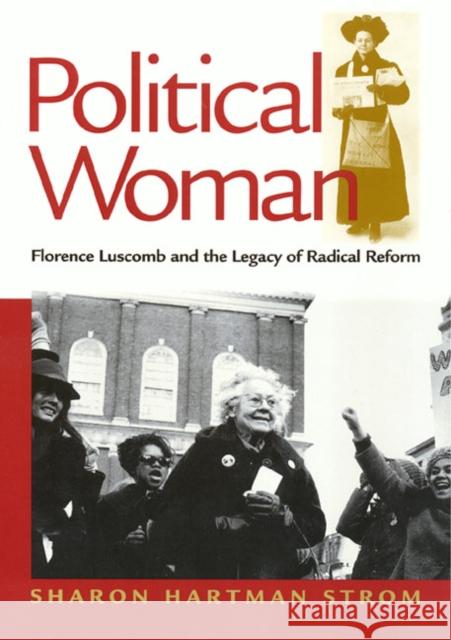Political Woman: Florence » książka
Political Woman: Florence
ISBN-13: 9781566398190 / Angielski / Miękka / 2001 / 352 str.
Political Woman: Florence
ISBN-13: 9781566398190 / Angielski / Miękka / 2001 / 352 str.
(netto: 130,03 VAT: 5%)
Najniższa cena z 30 dni: 135,98
ok. 22 dni roboczych.
Darmowa dostawa!
Florence Hope Luscomb's life spanned nearly all of the twentieth century. Born into a remarkable family of abolitionists and progressive thinkers, the young Florence accompanied her feminist mother to lectures and political rallies, soon choosing a course of political engagement and social activism from which she never retreated.
Political Woman counters the traditional narratives that place men at the center of political thinking and history. Showing how three generations of Luscomb's family had set the stage for her activism, this biography presents her story against the backdrop of Boston politics and larger struggles for social justice. Luscomb participated in every significant social reform movement of her time -- from securing women's right to vote and supporting trade unionism to advocating an end to the war in Vietnam. Luscomb also ran for public office; she was narrowly defeated when she ran for Boston's city council in 1922. Although unsuccessful as a third-party candidate for Congress (in 1936 and 1950) and for Governor of Massachusetts (in 1952), she was one of the few women of her time to seek office. Independent, athletic, and spirited, she apparently never thought that traditional gender prescriptions applied to her. A practicing architect before the First World War, an exuberant hiker all her life, and a member in collective-living arrangements, Luscomb enjoyed a life of rich experiences and sustaining relationships.
In Florence Luscomb's biography, Sharon Hartman Strom suggests that although women were excluded from the activities and sites associated with conventional politics until recently, they did political work that gave purpose to their lives and affectedpolitical thinking in their communities, states, and ultimately the nation.











